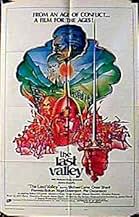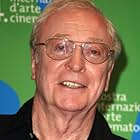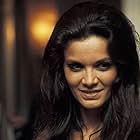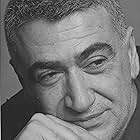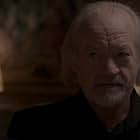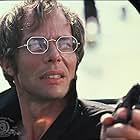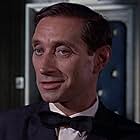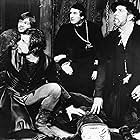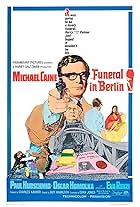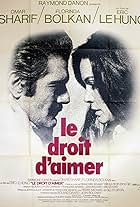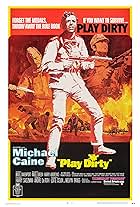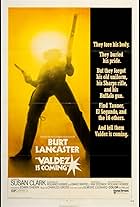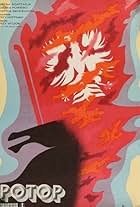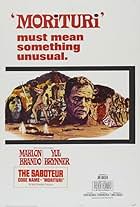Durante la Guerra dei Trent'anni del 1600, una banda di mercenari protestanti convive pacificamente con gli abitanti cattolici tedeschi in un'idilliaca valle di montagna nascosta e incontami... Leggi tuttoDurante la Guerra dei Trent'anni del 1600, una banda di mercenari protestanti convive pacificamente con gli abitanti cattolici tedeschi in un'idilliaca valle di montagna nascosta e incontaminata dalla guerra.Durante la Guerra dei Trent'anni del 1600, una banda di mercenari protestanti convive pacificamente con gli abitanti cattolici tedeschi in un'idilliaca valle di montagna nascosta e incontaminata dalla guerra.
- Inge
- (as Madeline Hinde)
Trama
Lo sapevi?
- QuizPerhaps the most praised element of the production was the score by John Barry, then most famous for his "James Bond" scores. In the new millennium, it was still regarded as one of his best scores. In a project to prepare a special CD release of the soundtrack, it was discovered that the complete original session recordings were either lost or destroyed.
- BlooperDuring the attack in the forest above the valley, a man with an arm injury is being comforted by a fellow soldier. The wounded man is lying against a rock but when an enemy shoots at him in the next frame he is standing as is his friend who was also leaning against the rock in the previous frame.
- Citazioni
The Captain: There is no Hell. Don't you understand? Because there is no God. There never was. Don't you understand? There is no God! It's a legend!
- ConnessioniFeatured in The World According to Smith & Jones: The Tudors (1987)
The first thing that makes a favorable impression with James Clavell's "The Last Valley" (1971) is the outstanding opening credits sequence with John Barry's magnificent score. Parts of the film have a dreamy, surreal quality, particularly the beginning and ending, which is reminiscent of the later "Apocalypse Now" (1979).
Caine is outstanding as a man so hardened by the horrors of war that he no longer even has a name, just "The Captain." He would perform a similar role in the underrated "The Eagle Has Landed" (1977), a stunning performance. The Captain's answer to everything was to simply kill, but now, in the valley, he has found peace and the warmth of love.
Sharif is also effective as the disillusioned Vogel. His reaction to the horrors of war has always been to run, but in the valley he also finds peace and love, and even, maybe, a family(?). The depth and seriousness of the story, including the dialogue of the characters touching on issues of war, loss, God, religion, ignorance, superstitions, love, hope, loyalty, duty, redemption, etc. Separates this from an ordinary war-adventure yarn.
It's also interesting to observe how people lived in a regular hamlet 400 years ago in backwoods Europe. It was not unusual for folks in such circumstances to live their entire lives within 10 miles or so from where they were born. Such people would likely be under-educated, superstitious, innocent, ignorant and narrow-minded all at the same time, and the film illustrates this.
Regrettably, there are parts that aren't pulled off very well. Some of the dramatic stagings and dialogues come off awkward here or there. These aspects perhaps needed more fine-tuning and this explains why critics originally panned the movie and why it fell into obscurity for decades.
Some have criticized the film for being anti-church or even anti-God. Actually the film's about the pursuit of God, truth, love and happiness in the face of the ultimate horror, war. And not just any war, a war that lasted three decades wherein innocent civilians - men, women & children - were needlessly slaughtered and whole cities burned to the ground, like Magdeburg, Germany, in 1631. The repugnance and terror of war caused The Captain to become a ruthless atheist, as he declares in one potent scene, and "tore the heart out of" Vogel, as revealed in another. But the last valley untouched by the never-ending conflict has given them both hope again.
Despite the obvious flaws the movie gets an 'A' for effort in my book. It is a special picture, oddly compelling, with nothing else like it. It successfully creates a small world of people some 400 years ago in a secluded vale in the paradisal wilderness of the Alps. A world you can get lost in for a couple hours.
The originality of the story and its profundities, not to mention the fine cast, performances and surreal aspects, lift the movie above a simple adventure yarn. It's unorthodox, enlightening, thought-provoking and ultimately moving. If you enjoy flicks like "Apocalypse Now" and "Runaway Train," films that attempt to go deeper than the run-of-the-mill action/adventure picture, then check it out. You'll continue to glean from it in future viewings. But, since this is a dialogue-driven movie, I recommend using the subtitles so you can understand the heavily accented dialogue.
The film runs 2 hours, 6 minutes, and was shot in Tyrol, Austria (Trins and Gschnitz and the Gschnitztal Valley).
GRADE: B+
I più visti
- How long is The Last Valley?Powered by Alexa
Dettagli
Botteghino
- Budget
- 11.000.000 USD (previsto)
- Tempo di esecuzione2 ore 5 minuti
- Colore
- Proporzioni
- 2.20 : 1
Contribuisci a questa pagina








